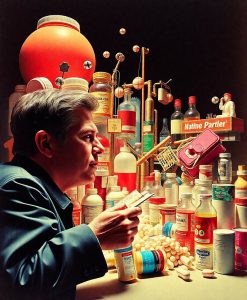Feeling the weight of prescription medication costs can be a heavy burden, especially when it seems like the prices keep climbing without clear reason. You might notice that the medicines you rely on every day are becoming more expensive, and wonder why it’s so hard to find affordable options. Sometimes, it feels like these prices are set far away from your personal experience, almost as if invisible forces are at play behind the scenes. That’s because they are.
Recent conversations have shone a light on a complex web of international pricing strategies that influence how much you pay for your prescriptions here in the United States. Specifically, some experts suggest that European countries are engaging in price-fixing agreements that keep drug prices artificially high in their own markets, which can ripple across the globe—affecting drug availability and affordability for Americans as well.
Understanding this connection can help you see your medication costs in a new light. It’s not just about what your local pharmacy charges; it’s about a larger system where governments and corporations sometimes work together in ways that aren’t immediately visible. When the U.S. government considers executive orders to lower prescription drug prices, these international influences often come into focus. The idea is that by addressing these price-fixing practices, the government might be able to lower the cost of life-saving medications for everyone.
How International Price-Fixing Might Affect Your Medicine Costs
European nations have long been involved in strategic negotiations and agreements over the prices of pharmaceuticals. These agreements can lead to a situation where drug prices are kept artificially high, not necessarily because of the actual cost of producing the medication, but due to coordinated policies and market controls. When such practices are in place, they can influence the global prices of drugs, making it difficult for other countries, including the U.S., to access affordable medications.
For the average person, understanding this interconnected web can make the puzzle of rising prescription costs seem less random and more systemic. It’s akin to a garden where the roots of the plants are tangled in unseen networks—what happens in one part of the world’s market can influence the prices you see at your local pharmacy. This recognition opens the door to discussions about how international cooperation and regulation impact your health and wallet.

What Could Changing International Price Policies Mean for You?
If measures are taken to address these European price-fixing agreements, the potential ripple effect could bring down your prescription costs. When the government takes steps to challenge these practices—like through executive orders or new policies—it may help break the cycle of artificially inflated prices, making essential medicines more accessible and affordable.
For those of us who rely on regular medications, this could translate into less financial stress and more control over our health. The hope is that by shining a light on how global market dynamics influence local prices, policymakers can craft strategies that prioritize patient needs over profit margins.
While the details of international negotiations can feel distant, their impact is very personal. The medications you take to stay healthy, manage chronic conditions, or recover from illness should not be dictated by unseen agreements across oceans. Recognizing these influences empowers you to stay informed and advocate for fairer pricing—because everyone deserves access to affordable healthcare.
Learn More: RFK Jr. to Newsmax: Trump Pharma Order Due to European Price-Fixing
Abstract: Health and Human Services Secretary Robert F. Kennedy Jr. told Newsmax on Monday that the impetus behind President Donald Trump’s executive order to reduce prescription drug costs for Americans was price-fixing by European nations.
Link: Read Full Article (External Site)


